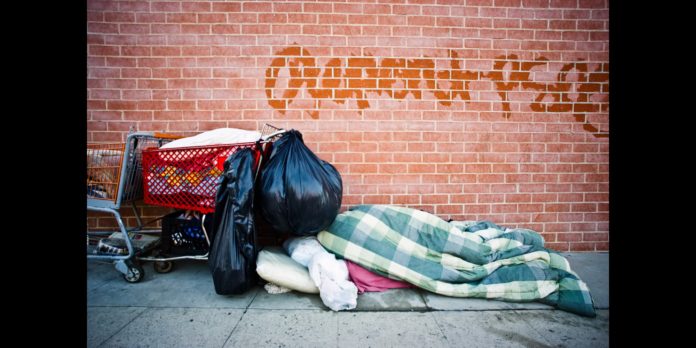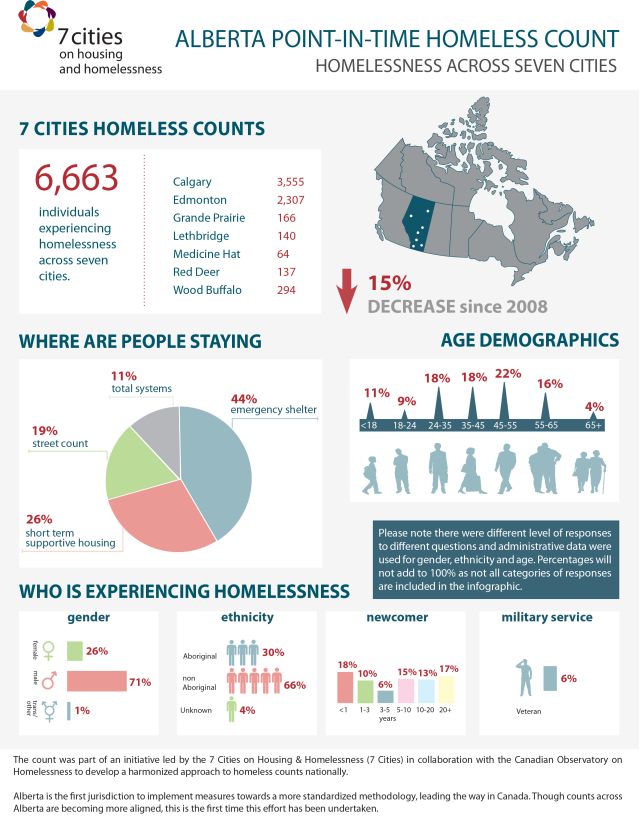
In 2010, a small city in Alberta, Medicine Hat with a population of 61,000, made a commitment to end homelessness by March 2015. Its Mayor Ted Clugston recently told The Calgary Herald that the goal could be met by the end of the year.
In 2009, Medicine Hat became one of the first Canadian cities to commit to ending homelessness using the ‘housing first’ approach consistent with the seven principles established in the provincial Plan for Alberta: Ending Homelessness in 10 Years.
- Everyone has access to safe, affordable, accessible, permanent housing.
- Addressing root causes of homelessness is essential to ending homelessness.
- Preventing and ending homelessness is a shared responsibility of all orders of government, the community, the corporate sector, service providers, and citizens.
- Programs and services are evidence-informed in their planning, and demonstrate measurable outcomes.
- Current essential services and supports are maintained during the transition to permanent housing.
- Goals and initiatives are program participant-centered and community-driven.
- Funding is long-term, predictable, and aligned with a community plan to end homelessness.
Ted Clugston, then member of the city council for Medicine Hat, had ridiculed the proposal to provide housing to the city’s homeless population and lobbied against the idea. Clugston is now a proud Mayor of Medicine Hat – on track to become the first Canadian city to end chronic homelessness.
“It makes financial sense. That’s how I had my epiphany and was converted. You can actually save money by giving somebody some dignity and giving them a place to live,” Clugston told The Calgary Herald. “If you can get somebody off the street, it saves the emergency room visits, it saves the police, it saves the justice system — and so when you add up all those extra costs … you can buy a lot of housing for that amount of money,” he told CBC News.
The Mayor’s change of opinion was partly due to his own personal political commitment to fiscal conservativism, and the realization that housing the homeless would save taxpayer dollars. “Treating homelessness as an acute problem was costing $100,000 per year, but once you treat it as a chronic problem that drops to $20,000,” he told The Huffington Post.
The Medicine Hat Community Housing Society has overseen a process by which people are swiftly moved into “independent and permanent homes” when they come into contact with housing workers. Housing is provided prior to other services — such as counseling for health issues or employment opportunities. The initiative has so far seen 885 homeless people find a place to live.
You want to discuss a certain topic with likeminded people or you want to organize a local protest or you have an idea for a project that can help people in need in your local community or all around the world? Join our forum! www.anonboards.com
You want to support Anonymous Independent & Investigative News? Please, follow us on Twitter: Follow @AnonymousNewsHQ






This lifts my spirit. Thank you for sharing.
I must commend your on this as this is showing that there are still sentient beings showing compassion without intent. You sovereigns are doing some very constructive work on behalf of the enslave man living in a world where the dog eats dog.
So did they start in 2009 or 2010? How many homeless do they have now? Not quite buying it.